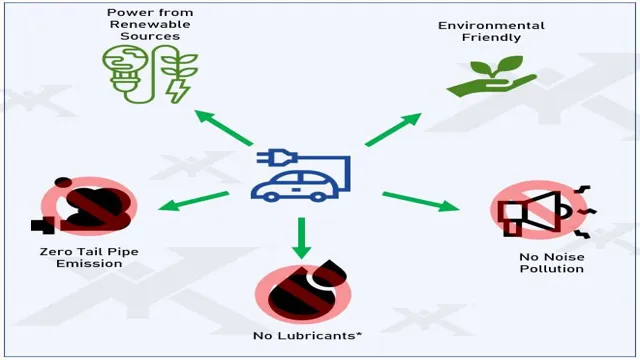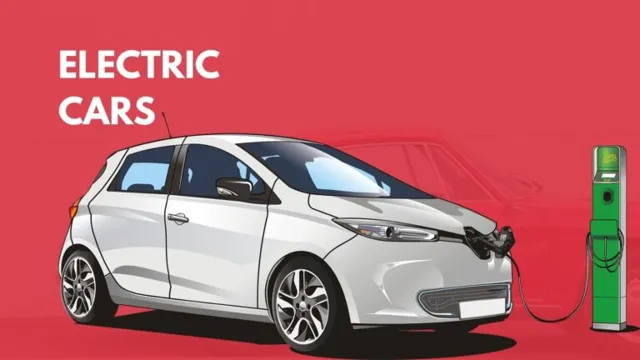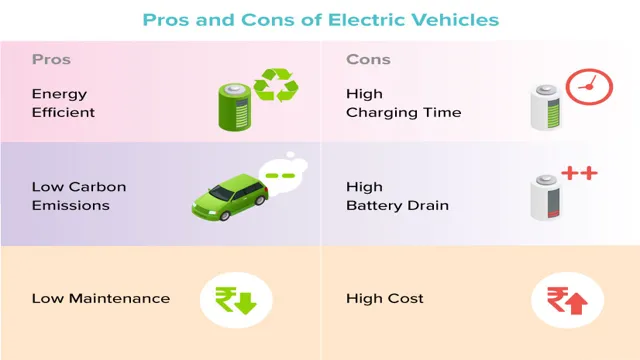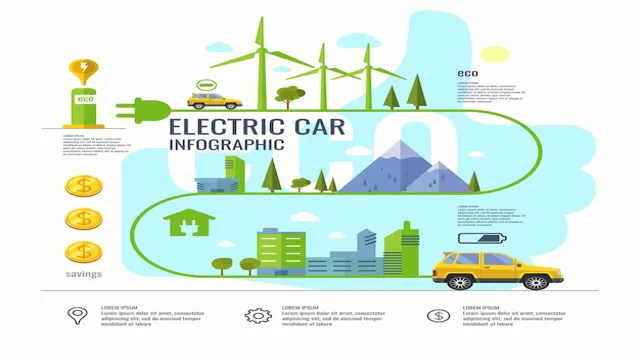The Power of Going Green: Discovering the Environmental Benefits of Electric Cars
As we become more conscious of the impact of our daily choices on the environment, the popularity of electric cars continues to grow. Not only do they offer significant savings on fuel costs, but they also have a much lower carbon footprint compared to traditional gasoline vehicles. Choosing to drive an electric car can have a positive impact on the environment by reducing carbon emissions and promoting cleaner air.
In this blog, we will explore the numerous environmental benefits that come with driving an electric car, and how they can play a crucial role in mitigating the effects of climate change.
Lowering Emissions
One of the most significant environmental benefits of electric cars is their ability to dramatically lower emissions. Unlike traditional gasoline-powered cars, electric vehicles do not produce harmful emissions that contribute to air pollution and climate change. This is because they run on electricity from batteries, which do not generate pollutants.
Additionally, as more renewable sources of energy are increasingly utilized, such as wind and solar energy, the carbon footprint of electric cars is becoming even smaller. Simply put, using an electric car reduces the amount of greenhouse gases released into the atmosphere, helping to mitigate the harmful effects of climate change. As we continue to shift towards a more sustainable, low-emissions future, the benefits of electric cars will become even more apparent.
With the reduction of air pollution and greenhouse gas emissions, electric cars serve as a catalyst for environmental conservation.
Electric cars produce fewer emissions than gas-powered vehicles
Electric cars are proving to be a great alternative to gas-powered vehicles when it comes to lowering emissions. The electric cars operate with electric motors that rely on batteries charged by electricity instead of gasoline. These batteries can be recharged at home, workplace, or at public charging stations.
Unlike gasoline engines, electric motors produce zero emissions and have no tailpipe. This means that as long as the electricity used to charge the batteries comes from clean energy sources such as wind and solar power, electric vehicles have close to zero emissions. Moreover, even if some of the electricity used to charge the electric cars comes from fossil fuels, it still produces fewer emissions than gasoline-powered cars.
The use of electric vehicles significantly helps reduce air pollution in urban areas, making our cities healthier and more livable. With electric cars, we can significantly reduce our carbon footprint, and thus curb the negative impacts of climate change.
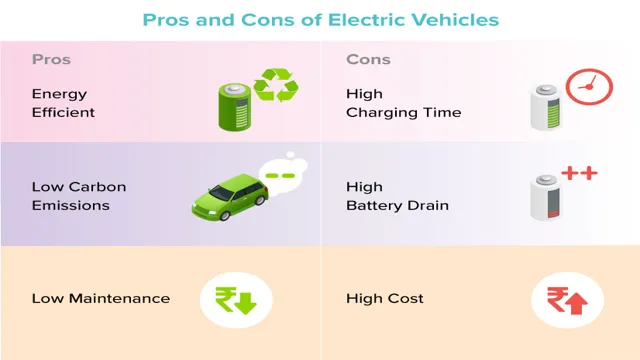
Reducing air and noise pollution in cities
Reducing air and noise pollution in cities is of utmost importance if we want to create a healthier and more sustainable environment for all. One effective way to achieve this is by lowering emissions from transportation. Cars and public transportation are major contributors to air pollution in urban areas, emitting harmful gases such as carbon monoxide and nitrogen oxides.
Encouraging the switch to electric or hybrid cars, expanding bike lanes, and improving public transportation options are all ways to decrease emissions and improve air quality. Additionally, reducing noise pollution is also crucial for our well-being. Excessive noise can lead to stress, sleep disturbances, and even hearing loss.
Implementing noise barriers, regulating traffic flow, and establishing quiet zones can all help to reduce noise pollution. By taking action to lower emissions and reduce noise pollution, we can create healthier and more livable cities for everyone.
Lowering Carbon Footprint
If you’re looking for an environmental benefit, driving an electric car might just be the way to go. One of the biggest advantages of owning an electric car is drastically lowering your carbon footprint. Unlike traditional gasoline-powered vehicles, electric cars emit zero carbon emissions directly and greatly reduce tailpipe emissions.
This means that by driving an electric car, you’re actively reducing the amount of harmful pollutants released into the atmosphere and helping to combat climate change. Additionally, choosing to charge your electric car using renewable energy sources like wind or solar power can further reduce your carbon footprint, making it an even more eco-friendly option. So not only are you driving a vehicle that’s easier on the environment, but by doing so, you’re also making a valuable contribution to a cleaner, more sustainable future.
Electric cars produce significantly fewer greenhouse gas emissions
Electric cars are an essential part of reducing our carbon footprint and fighting climate change. Compared to their gas-powered counterparts, electric cars produce significantly fewer greenhouse gas emissions. The electricity used to power electric cars comes from a variety of sources, including renewable sources such as solar, wind, and hydroelectric power.
In contrast, gasoline-powered vehicles emit toxic chemicals and pollutants that are harmful to the environment and human health. By driving an electric car, individuals can contribute to the reduction of harmful emissions and make a positive impact on the planet. Plus, electric vehicles can save you money on fuel costs in the long run.
It’s a win-win situation for both the environment and your wallet!
Producing electric cars has lower carbon footprint than traditional cars
Electric cars are becoming increasingly popular due to their lower carbon footprint compared to traditional cars. The production of electric cars emits fewer greenhouse gases during the manufacturing process than producing gasoline-powered cars. This is due to the use of lithium-ion batteries in electric cars, which produce fewer emissions than traditional car batteries.
Additionally, the electricity used to power these vehicles can be sourced from renewable sources like wind and solar power, further reducing their carbon footprint. As a result, electric cars are a better option for those looking to reduce their carbon footprint and contribute to a cleaner, greener planet. So, if you’re in the market for a new car, you might want to consider going electric for a cleaner, more sustainable future!
Lowering Energy Consumption
One of the great environmental benefits of driving an electric car is its lower energy consumption. Traditional gasoline-powered cars rely on internal combustion engines to propel them forward, consuming fossil fuels and emitting harmful pollutants into the air. Electric cars, on the other hand, operate on rechargeable batteries and use far less energy to travel the same distance.
The energy savings from using an electric car can have a significant impact on the environment, reducing carbon emissions and contributing to a more sustainable future. Plus, with more and more electric charging stations being added across the country, it’s becoming increasingly convenient to own and operate an electric car. So not only can you save money on fuel costs, but you can also feel good about doing your part to protect the planet.
Electric cars use less energy to travel the same distance as gas-powered vehicles
Electric cars have become increasingly popular due to their numerous benefits, one of which is their lower energy consumption. Electric cars use significantly less energy to travel the same distance as gas-powered vehicles. This is due to their efficient engines and regenerative braking systems.
A regenerative braking system captures the energy lost during braking and converts it into electricity, which can be used to power the car’s battery. This reduces energy waste and makes electric cars more energy-efficient. Additionally, electric motors are highly efficient at converting energy into motion, which further reduces energy consumption.
Overall, electric cars are a great option for those who want to reduce their carbon footprint and save money on gas in the long run.
Regenerative braking technology saves energy and reduces waste
Regenerative braking technology is one of the most promising energy saving solutions that can help to reduce waste. It aims to capture the kinetic energy produced by vehicles, trains or other moving objects during deceleration and convert it into electrical energy. This process is done by using a special braking system which employs an electric motor in place of traditional brakes.
By doing so, regenerative braking technology reduces the amount of energy that is wasted as a result of using traditional braking systems, which convert this kinetic energy into heat and dissipate it into the environment. The potential for energy savings with regenerative braking is significant, as it can save up to 70% of the energy that would otherwise be wasted during the braking process. This technology can be employed in a variety of applications, such as electric vehicles, hybrid electric vehicles, and in railway systems, among others.
Overall, regenerative braking is a cost-effective and efficient way to help reduce energy consumption, which in turn can help to lower our carbon footprint and protect the environment.
Conclusion
In conclusion, electric cars offer a myriad of environmental benefits that cannot be ignored. By emitting zero emissions when driven, electric cars help to curb air pollution and reduce the carbon footprint of transportation. Additionally, by utilizing renewable energy sources to power their batteries, electric cars aid in the transition towards a cleaner energy future and promote sustainable living.
So instead of driving a gas-guzzling, pollution-spewing vehicle, consider making the switch to an electric car and join the movement towards a greener and brighter tomorrow!”
FAQs
What are the environmental benefits of owning an electric car?
Electric cars produce zero emissions, helping to reduce air pollution and greenhouse gas emissions that contribute to climate change. They also have lower overall carbon footprints compared to traditional gas-powered vehicles.
How do electric cars benefit the environment compared to gas-powered cars?
Electric cars emit fewer pollutants and greenhouse gases, resulting in cleaner air and a reduced carbon footprint. They also use renewable energy sources and can be charged with solar panels for an even more eco-friendly alternative.
Do electric cars have a positive impact on the environment?
Yes, electric cars have a positive impact on the environment by reducing emissions and promoting the use of clean energy sources. By choosing an electric car, you can make a difference in reducing pollution and mitigating climate change.
How does the use of electric cars benefit public health?
Electric cars produce no exhaust fumes or emissions that can cause respiratory problems and other health issues. The reduction in air pollution from the widespread use of electric cars can have a significant positive impact on public health.
